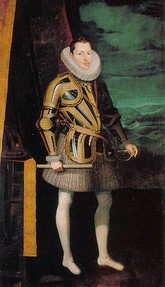 If James I and VI had been killed, and the House of Lords destroyed, then the average Briton would have been expecting Spain to swoop like a shark to complete the slaughter.
If James I and VI had been killed, and the House of Lords destroyed, then the average Briton would have been expecting Spain to swoop like a shark to complete the slaughter.
That simply would never have happened.
Philip III of Spain would have kept his distance for the same reason as Henry IV of France and Navarre and every other European crowned head. They could not openly support the murder of an anointed monarch by his own subjects, especially not commoners.
That would be setting a dangerous precedent, that would not have gone unnoticed by the Spanish, French and Navarre people. Better to preserve the mystique of monarchy than claim another country for Rome.
We know this because both Philip and Henry refused involvement in many earlier plots by disgruntled English Catholics. Philip, at least, had also been approached by two members of the Gunpowder Plot, before it had been put into operation. He once again declined support.
In the upper echelons of Parliament and court, there was a pervasive suspicion that Catesby, Fawkes et al., had been working on the express orders of the Vatican or Spain.
It was never proved and probably wasn't true in either case. Guy Fawkes was questioned about the involvement of the latter, while under torture. He eventually spoke about the entire Gunpowder Plot and named names. He also confessed to details which had been cooked up in Lord Salisbury's imagination.
Yet Fawkes always denied the involvement of Spain. He had no reason to hold back at that point, so it's probably correct.
There would be plenty of precepts upon which the Catholic monarchs in Europe could invade, not least the inevitable lynching or arrest of their own ambassadors or papal agents. But the cons would always outweigh the pros, while the divine office of kingship was at stake.
But moreover, what would be the point? Jacobean England frankly wasn't that important to start with. Now it was a politically crippled, practically bankrupt nation, with a highly hostile population, that would be difficult to defend and hold, when the Protestant countries in the north rushed in to take it back.
So what's in it for Philip then?
Why not just fight the Dutch in Flanders, as normal, without the hassle of an occupation complicating matters? The Protestant armies would be one nation down, as England would have too many troubles at home to participate right now or at any time in the foreseeable future.
For continental Europe, there were simply bigger fish to fry, as the Thirty Years' War would soon demonstrate.
But there's one last, huge consideration. Catholic Ireland would be unlikely to be so docile. Shock and sympathy immediately after the explosion would soon give way, if anti-Papist feeling erupted so violently across mainland Britain. It would turn to antagonism and fury instead.
If there was ever a possibility of a Catholic Uprising, as a direct consequence of the Gunpowder Plot, it would have been Gaelic. Supported by the Scottish Highlands, Spain, France and maybe the Papacy, the Irish might even have won.



 History is always written by the winners. Thus it is that we call the Gunpowder Conspirators terrorists now. Had they succeeded, they would have been freedom fighters.
History is always written by the winners. Thus it is that we call the Gunpowder Conspirators terrorists now. Had they succeeded, they would have been freedom fighters.




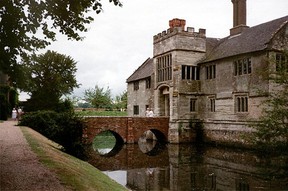




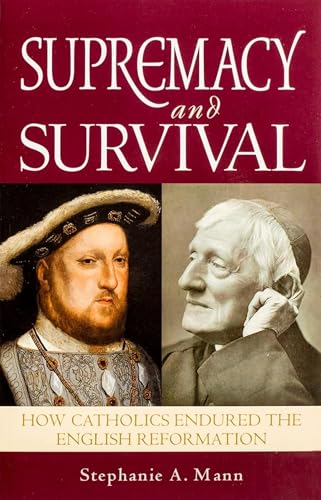


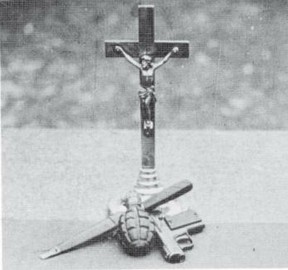 In the tension of the times, Father George Blackwell, clandestine Archpriest of English Roman Catholics, not only officially and publicly condemned the Gunpowder Plot, but gave a sermon appealing for calm.
In the tension of the times, Father George Blackwell, clandestine Archpriest of English Roman Catholics, not only officially and publicly condemned the Gunpowder Plot, but gave a sermon appealing for calm.  Against all common sense and probability, enough English Catholics joined Robert Catesby's riders that the Uprising has begun. We can suspend any speculation about a higher ranking Papist nobleman taking the lead, as most of them would be dead in the ruins of the House of Lords.
Against all common sense and probability, enough English Catholics joined Robert Catesby's riders that the Uprising has begun. We can suspend any speculation about a higher ranking Papist nobleman taking the lead, as most of them would be dead in the ruins of the House of Lords.


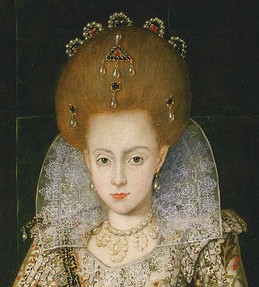 When Sir John Harrington learned of the horse theft, every alarm bell in his instinct rang. This actually did happen, so no speculation is required here.
When Sir John Harrington learned of the horse theft, every alarm bell in his instinct rang. This actually did happen, so no speculation is required here.



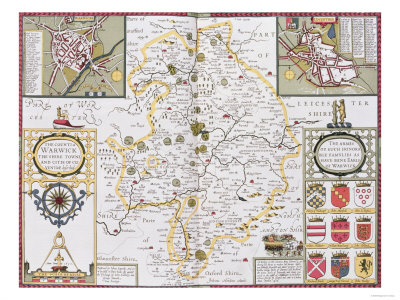
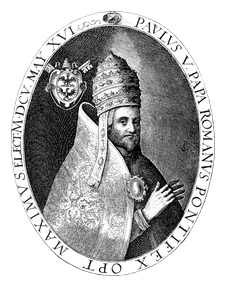 The population of England has openly and furiously turned against their Catholic neighbors. People are being beaten, killed or dispossessed, surely now the community would rise?
The population of England has openly and furiously turned against their Catholic neighbors. People are being beaten, killed or dispossessed, surely now the community would rise?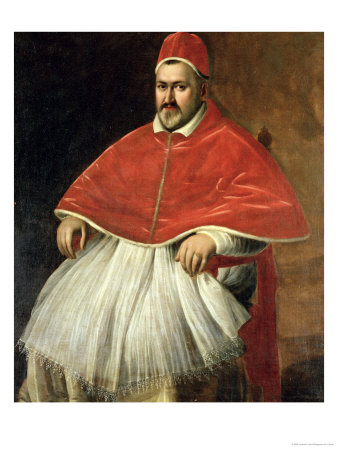
 If James I and VI had been killed, and the House of Lords destroyed, then the average Briton would have been expecting Spain to swoop like a shark to complete the slaughter.
If James I and VI had been killed, and the House of Lords destroyed, then the average Briton would have been expecting Spain to swoop like a shark to complete the slaughter.






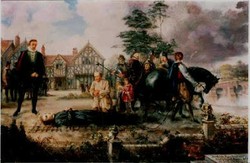

 St Tydecho's Churches in West Waleson 09/03/2014
St Tydecho's Churches in West Waleson 09/03/2014
 Goodies for an Outlander Premiere Partyon 03/06/2015
Goodies for an Outlander Premiere Partyon 03/06/2015
 Holocaust Memorial Day Interview with Rainer Höss, Grandson of Rudolf Architect of Auschwitzon 01/24/2015
Holocaust Memorial Day Interview with Rainer Höss, Grandson of Rudolf Architect of Auschwitzon 01/24/2015
 Romantic Valentine Gifts for an Outlander Fanon 01/16/2015
Romantic Valentine Gifts for an Outlander Fanon 01/16/2015

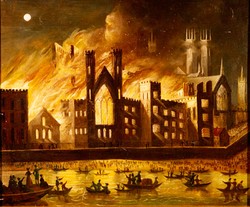
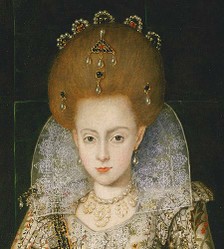
Another Time-Line? Tell me where you think it would have played out differently. Or agree, if you think that I was spot on.
That's the job of an historian. :) Plus the facts, figures and whatever other primary sources provide the evidence. But all of this is why I love history so much.
Human nature doesn't change at all. The circumstances, the culture, the fashions and fads, they all change, but we're fundamentally the same sort of people who first went on a grand expedition to see what lay outside Africa.
Thanks for the plus one on my reading of the alternative history!
I love that you can look at history and practically get in each group's mindset, and use similar events to argue why certain things might or might not happen. Whether it's with something like this where you're saying how history might have been different, or those times where you're practically predicting the future...
I think it's possible to say what the immediate historical differences might have been, and I couldn't say any way from the other what might have happened, but your version sounds pretty spot on to me for what might have happened for perhaps the most likely scenario...But apart from that I think it is impossible to say. :D
Great answer! In fact, downright perfect answer. It's always too soon to tell in history. <3
Enjoy your coffee. <3
It's too early to tell. Need another coffee. Great story!